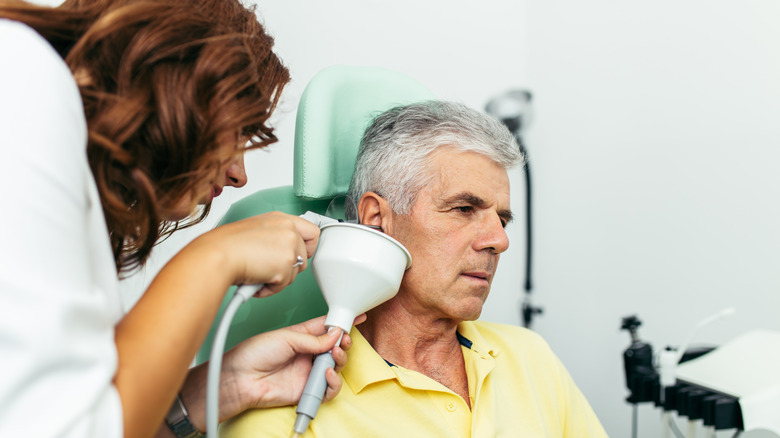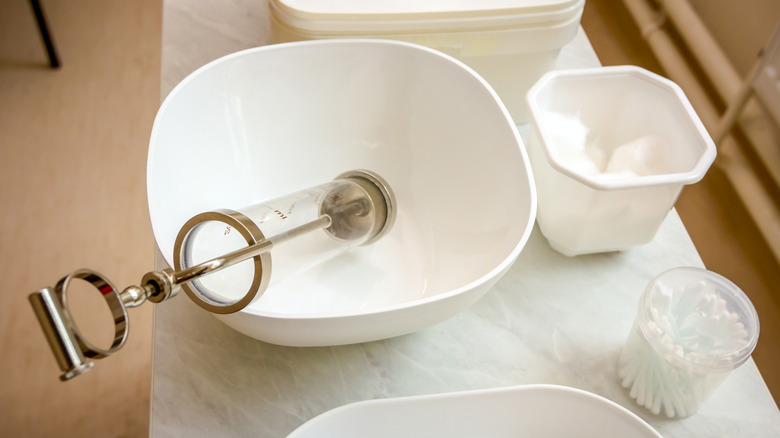What To Expect Before You Go For A Professional Ear Cleaning
A professional ear cleaning, also known as ear irrigation, is a routine cleaning method of the ears when too much wax has built up. However, it is also used to remove any foreign objects from the ears. According to Healthline, the ear secretes earwax, or cerumen, to protect the ear by lubricating the canal and keeping out bacteria and debris. Typically, the body produces just enough earwax for the ears to handle alone. However, it's common for some people to have more of an earwax buildup, which may require an ear irrigation procedure to get the ears clean.
Too much earwax in the ears can be detrimental to your body when left untreated. MedicalNewsToday reports earwax buildup can cause a chronic cough, hearing loss, pain, or itching. Whether it's too much buildup or the earwax hardened, this type of blockage in the ear can also result in ringing of the ears (via Healthline). The ear canal is an extremely sensitive area of the body, so safe and proper cleanings are vital, meaning you don't want to use cotton swabs to clean your ears.
Steps of ear irrigation
Getting your ears cleaned professionally is a common procedure. According to Second Chance Hearing, ear irrigation is one of the most common reasons people see their doctor. Prior to the procedure, your doctor will look into your ear with a tool to determine if ear drops are needed. Some patients will require a few drops of solution to help break up the earwax, which may give you a fuzzy, popping sound in your ear until irrigation begins.
Once a solution — often saline — is dropped into the ear, you'll keep your head to the side to allow the drops to fall into your canal. Then, the ear is gently pulled up as warm, clean, room-temperature water is inserted into the ear and essentially "flushed" out (via Second Chance Hearing). Flushing out the ear helps loosen the earwax. The ear may need to be flushed more than once, but removing the earwax will relieve pressure, reports Doctors Hearing Services.
After your procedure is finished, you can expect your doctor or audiologist to put a few drops of rubbing alcohol in your ears or dry your ears off with a towel. According to The Hearing Doctor, you may experience some sensitivity or discomfort in your ears, both of which are normal symptoms to have after ear irrigation. If you're having any pain or problems, be sure to tell your doctor as they may prescribe you medication or ointment to alleviate your symptoms.


